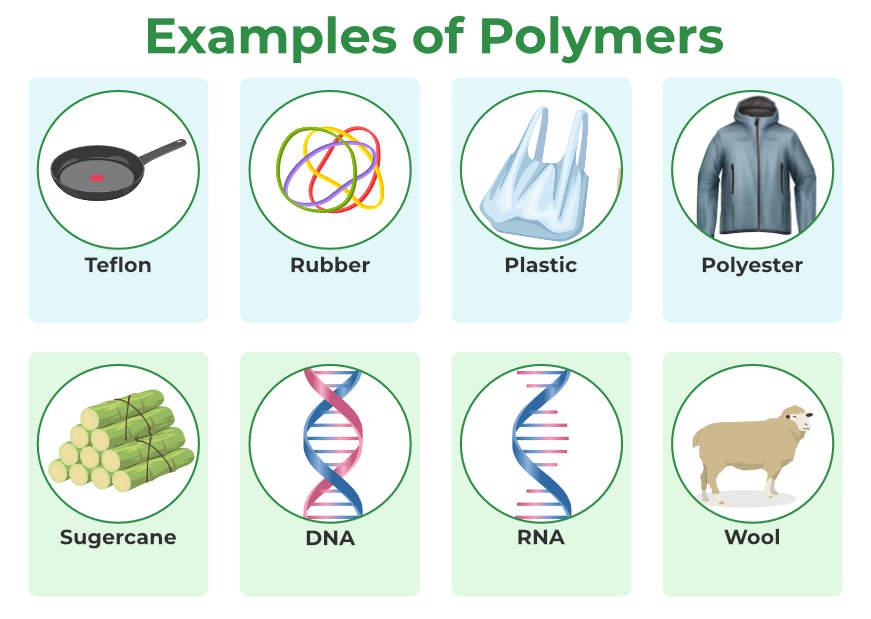Cutting-edge Polymers: Reinventing Modern Production
Taking Advantage Of the Power of Polymers: Comprehending the Extensive Usages and Positive Influences
Polymers, with their varied chemical frameworks and homes, have actually become important in many sectors, transforming the method we communicate with materials on an everyday basis. As we discover the extensive uses of polymers and their function in shaping a much more lasting, reliable, and innovative future, it becomes apparent that their capacity is as huge as the particles themselves.
Convenience in Everyday Products
Polymers exhibit amazing flexibility in a large variety of daily items, showing their crucial duty in modern-day society. From the flexible plastic housing of mobile phones to the long lasting fibers in garments, polymers have actually changed the way we interact with items in our lives. Among the most common usages of polymers remains in product packaging products. Polyethylene, as an example, is commonly used in food packaging due to its light-weight, sturdy, and moisture-resistant residential or commercial properties. Additionally, polymers play an essential role in the automotive sector, where they are made use of in producing lightweight components that boost gas efficiency.
Furthermore, polymers have located their method into the health care industry, with applications varying from medical devices to medication delivery systems. For example, naturally degradable polymers are used in stitches and implants, decreasing the threat of negative reactions in individuals (Polymers). In the building sector, polymers are integrated right into paints, adhesives, and insulation materials, boosting resilience and power efficiency. On the whole, the flexibility of polymers in day-to-day products highlights their value in driving development and boosting quality of life.
Sustainability in Material Innovations
With the continuous focus on ecological consciousness and resource effectiveness, the emphasis changes towards sustainability in material advancements, mirroring a growing commitment to responsible manufacturing methods throughout numerous sectors. Recently, there has been a noteworthy surge in the advancement of lasting materials, specifically within the world of polymers. These ingenious materials are developed to reduce environmental effect throughout their entire lifecycle-- from sourcing raw materials to disposal or recycling.
One considerable element of sustainability in material developments is the concept of biodegradability. Naturally degradable polymers have garnered attention for their ability to damage down normally right into safe by-products, decreasing waste and contamination. Furthermore, making use of recycled polymers originated from post-consumer or post-industrial sources is obtaining grip as a way of promoting a circular discover this info here economic climate and decreasing dependency on virgin products.

Enhancing Efficiency in Design
Enhancing performance in design needs a careful combination of advanced technologies and specific techniques to enhance performance and efficiency in numerous commercial applications. Polymers play an important role in this endeavor, supplying a variety of benefits that enhance the efficiency of engineering products and elements.
One key facet of improving performance in design is the capability of polymers to improve resilience and toughness. By integrating polymers into design designs, suppliers can produce light-weight yet robust structures that can hold up against high degrees of tension and strain. This particular is particularly useful in industries such as aerospace, auto, and building, where the need for strong yet light-weight materials is vital.
Additionally, polymers can additionally enhance efficiency by offering thermal and chemical resistance, minimizing friction, and enhancing electric conductivity. These residential properties make polymers perfect for a vast array of engineering applications, find out here consisting of seals, bearings, finishings, and digital parts. Polymers. By taking advantage of the special residential properties of polymers, designers can optimize the performance of their styles and produce more effective and trusted products
Effect on Clinical Advancements
The combination of sophisticated polymer technologies has dramatically added to innovative improvements in the clinical area. Polymers have actually played an essential function in contemporary clinical improvements, varying from medicine distribution systems to cells design. Among the key areas where polymers have made a substantial impact is in the development of biodegradable sutures and implants. These polymers can be tailored to degrade at a specific rate, enabling better wound recovery and lowering the demand for added surgical procedures to get rid of implants.
Moreover, polymer-based products are significantly being utilized in medical devices such as catheters, stents, and prosthetics as a result of their biocompatibility and adaptability. For instance, polymer coverings on clinical tools can stop infections and improve total Get More Information individual results. Furthermore, developments in nanomedicine have actually allowed using polymer nanoparticles for targeted medicine shipment, boosting the effectiveness and reducing negative effects of different medications
Duty in Environmental Conservation

Additionally, polymers are made use of in water treatment processes, helping in the filtration and recycling of water resources. This assists in lowering water pollution and making sure accessibility to tidy water for both human consumption and environmental wellness. Polymers additionally play a role in agriculture via the growth of biodegradable mulches and controlled-release plant foods, advertising lasting farming practices.
Conclusion
In conclusion, polymers have actually confirmed to be a functional and crucial product in different markets, from everyday products to design and clinical improvements. Comprehending the comprehensive uses of polymers emphasizes their relevance in driving advancement and development in multiple areas.